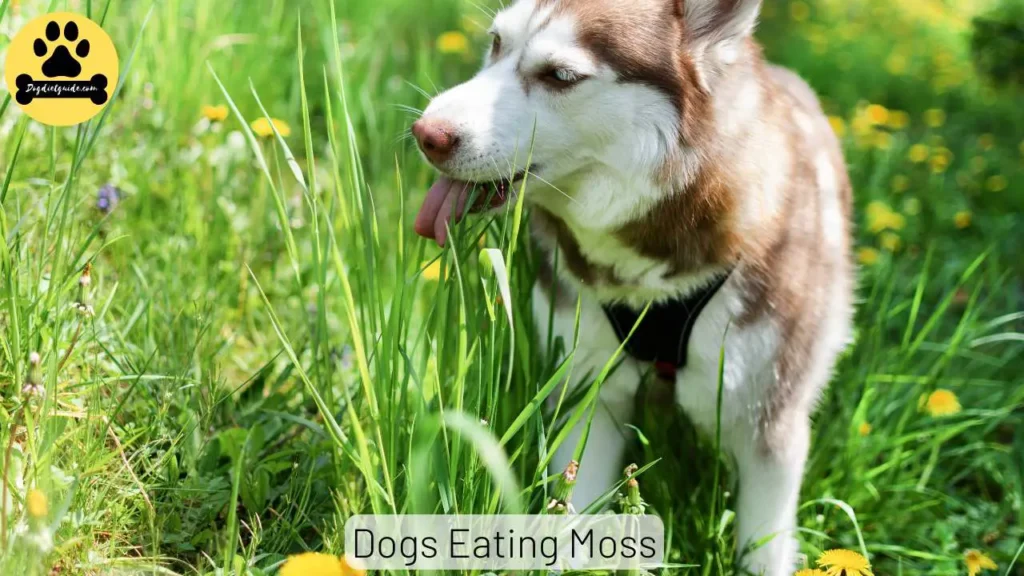Dogs are known for their curious and often quirky behaviors, and one such behavior that might leave pet owners puzzled is their tendency to eat moss. While it might seem harmless or even amusing initially, it’s important to investigate the reasons behind this behavior and understand the potential risks involved. So, can dogs eat mosses?
Is Eating Moss Toxic To Dogs?
Mosses are generally not considered highly toxic to dogs. However, it’s important to note that some mosses, like rock and peat moss can cause gastrointestinal upset or irritation if dogs ingest them.
If you have reason to believe that your dog may have consumed any plant material and is displaying signs of illness, it is advisable to seek guidance from a veterinarian for appropriate assistance.
The Fascination With Moss
Canines are innately curious about their surroundings, including exploring various textures and scents. With its earthy aroma and unique texture, moss can pique a dog’s interest, leading them to nibble on it.
Dogs Eating Moss: Moss is not a typical part of a dog’s diet, and their attraction to it might stem from boredom, curiosity, or even an attempt to soothe an upset stomach.
Toxic Types of Mosses For Dogs
-
Rock Moss
-
Peat Moss
-
Moss Rose
Why Is Rock Moss Toxic To Dogs?
Rock moss is considered toxic to dogs due to its content of soluble calcium oxalates. These oxalates comprise potassium and sodium salts of oxalic acid, the compounds responsible for the toxicity.
When a dog ingests rock moss, these soluble oxalates are rapidly absorbed by the gastrointestinal tract, giving rise to various symptoms of toxicity.
Potential Risks of Eating Moss
While occasional consumption of moss might not cause immediate harm, there are potential risks to be aware of:
-
Certain types of moss can be toxic to canines, containing compounds that could lead to gastrointestinal upset, vomiting, diarrhea, and even more severe reactions.
-
Moss can contain small particles that, when ingested, might cause obstructions in the digestive tract, leading to discomfort or more serious health issues.
-
Moss growing outdoors could potentially harbor pesticides or other contaminants, posing a risk to dogs if ingested.
Moss Toxicity Symptoms In Dogs
-
Vomiting, diarrhea, abdominal discomfort
-
Lethargy and weakness
-
Loss of appetite
-
Excessive drooling or salivation
-
Tremors or seizures
-
Difficulty breathing or respiratory distress
-
Irregular heartbeat
-
Pale gums or jaundice (yellowing of skin/eyes)
-
Changes in behaviour: restlessness, anxiety, depression
-
Increased thirst and urination
Preventive Measures
Engage your furry friend in regular playtime, exercise, and interactive activities to prevent boredom-induced exploration.
Ensure your pet’s diet is balanced and meets their nutritional needs. If concerned about deficiencies, consult with a veterinarian for appropriate dietary adjustments.
While outdoors, keep a close eye on your dog to prevent them from ingesting potentially harmful substances like moss.
Teaching your pooch, the “leave it” command can help redirect their attention away from non-food items, like moss.
Related Posts:










![Can Dogs Eat Blood? 7 Side Effects [Expert Opinion]](https://petskor.com/wp-content/uploads/2022/04/Webp.net-resizeimage-12.jpg)
